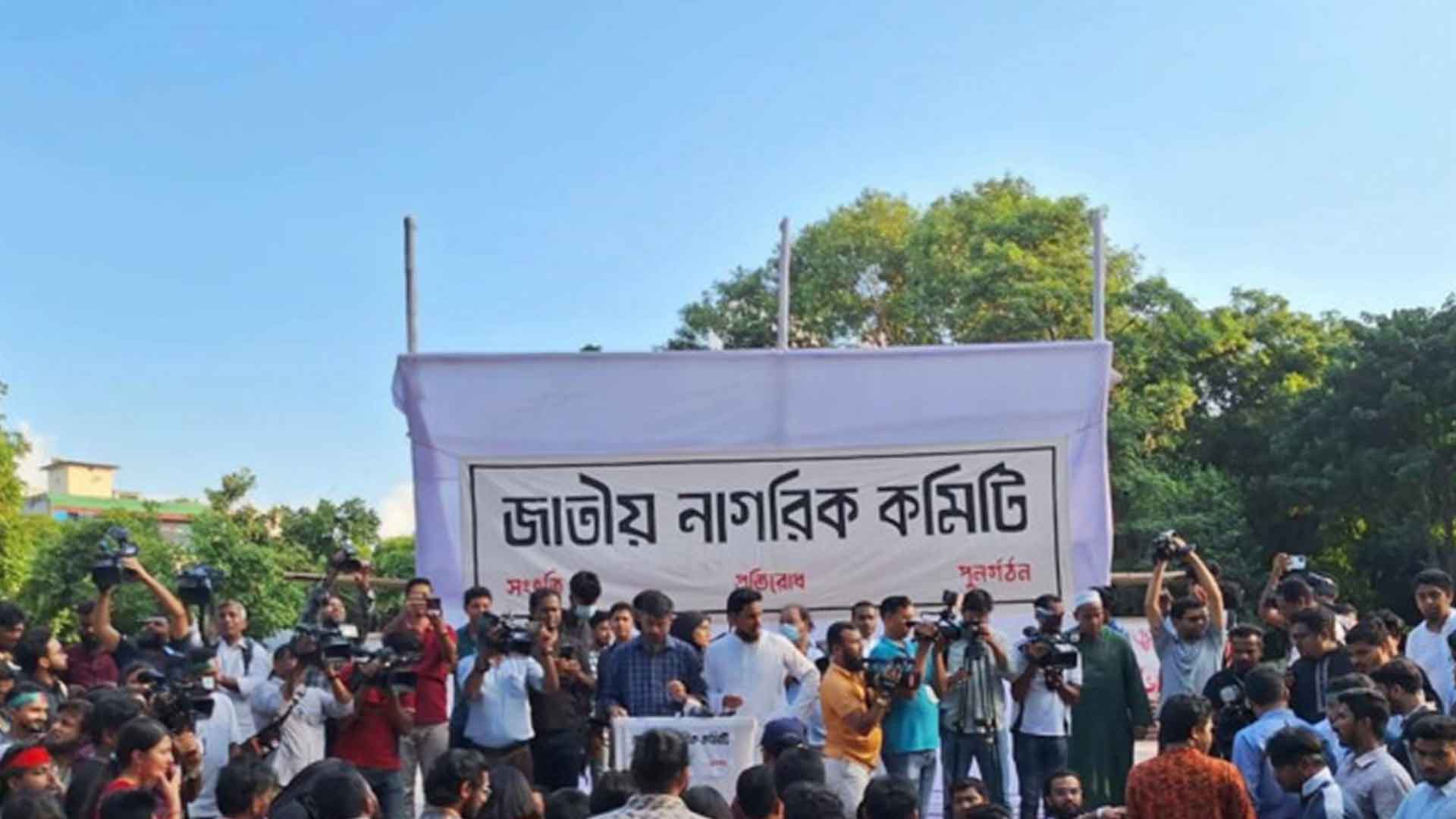Most sections of the media welcomed the arrival of new party and fresh faces like the Jatiya Nagorik Party, but some experts have raised cautious voices, pointing to the challenges that lay ahead.
Launched by the same “student-led movement” that had spearheaded the protests toppling Sheikh Hasina, the NCP is the National Citizens’ Party (Jatiya Nagorik Party). With its promise of a “second republic,” the party signals an intent to reshape Bangladesh’s political landscape. But how realistic are its aspirations? What does it need to do to break established parties’ domination?
The youth’s call for a new political settlement will, of course, inspire hope among the public, adds Prothom Alo in its March 2 editorial. “We can all agree, even if everyone does not fully agree with all of the new party’s programmes and commitments, that their aspiration to replace division with unity, retribution with justice, uplift marginalised communities and establish leadership based on merit and competence at the levels of society and the state, is one we can all support.”
The editorial reminds readers that even with the mass uprisings of 1969 and 1990, political power did not remain with the youth. “The leaders of the anti-authoritarian movement in 1990 fell short of the guidelines provided by the three alliances they proclaimed.
Those who took charge put their interests and that of groups above the nation. The three elections in which people’s voting rights were suppressed made it easy for a fascist system to be established.” Still, the editorial welcomes the new party but cautions that “the selection of leadership needs to be a democratic process.”
Political analyst, academician, and journalist H M Nazmul Alam, writing in the Dhaka Tribune on March 3, questions if the student-owned NCP can become a genuine political force? Lest we forget, the NCP was founded in June 1999; had it emerged immediately after the July-August uprising, with its raw energy of the people harnessed and channelling it in a structured political movement.”
Instead, delay has given competing political forces time to regain lost ground, draining the party’s early advantage.” Alam warns that restricting its constituency to only students and urban activists will not cut it: “They (the NCP) need to realise that the student and urban activist constituency is not sufficient for mobilising them.
And without a substantial network of local organisers, it will find it hard to turn enthusiasm into electoral wins. “At the same time, building a robust alliance with trade unions, farmers’ associations and local organisations could give the NCP the much-needed base beyond the university campuses.” And yet he believes the party is not necessarily doomed to irrelevance. “Political history is littered with movements that quashed early doubts.”
In a March 5 piece, Prothom Alo deputy editor A K M Zakaria looks at what the new party offers. He continues, “This time they were in the leadership. Our students, following the mass movement, were chomping at the bit to turn on new politics.
They were a part of the interim government, and now they have established a new political party and entered the field. This is something no one in Bangladesh has seen.” Zakaria then questions the party’s ideology: “The question now is, what will be the ideological differences between the BNP and the new party?
Also, which way will the new party tilt? Left, or right? It appears to have been a power struggle among students oriented in different directions in terms of ideological beliefs affiliated with the party. The populace is curious to see where the party’s ideological position lands.”
He foresees “tough scrutiny and resistance from conventional political forces”: “It must be kept in mind that the forces of conventional politics and the system will not welcome with too much enthusiasm people who smashed the long and established rule of Hasina.”
In a different Prothom Alo piece on 5 March, Mahmudur Rahman Manna — one-time Awami League leader, now in opposition to Hasina — insists that fundamentalism will not guarantee enduring success, as democracy is the “better principle.” “The students were in the radical category.
Radicalism at this age is usually the best choice. But in the aftermath of the radical camp’s victory in the struggle, it was democratic or constitutional camp that came to dominate state-building. For a long time, the students could not make sense of this. They protested, either from anyone who understood or did not understand against many significant decisions made by the government; in fact, they had done movements against it.
But their movements have yielded no success. And they could not have succeeded.” He asks what the NCP is going to do for nation-building: “Though the NCP is a party which was formed by young people, I hope they would be responsible faces in the field of politics.
Lastly, in a March 1 piece for The Daily Star, Shamsad Mortuza, a professor of English at Dhaka University, provides another tempered probe of the NCP’s fate. While he does not want to discourage young revolutionaries, he stresses the importance of “striking roots” and warns that “the party’s high moral ground is already being sullied by some allegations of corruption and violence.
Some of the accusations are political smears, but others appear authentic enough to warrant concern. “For the sake of credibility, the party must now tell the whole truth, to advocate transparency and due diligence and to regain public trust.”

